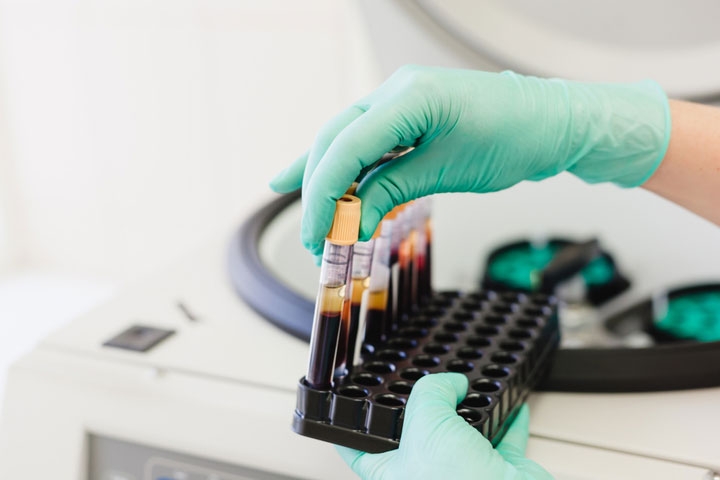Plasma Fractionation: Extraction of Therapeutic Proteins from Plasma

What is Plasma Fractionation?
Plasma Fraction is the process of separating the various therapeutic proteins in plasma into individual purified components. Plasma is the liquid portion of blood that remains after red blood cells, white blood cells, and platelets are removed. Plasma contains over 7,000 different proteins that transport substances like nutrients, waste, hormones, antibodies, and more throughout the body. Fractionation separates these complex mixtures into individual purified plasma-derived proteins or fractions that can then be used to manufacture medications for treating various medical conditions.
The Plasma Fractionation process
The first step in Plasma Fractionation is plasma collection. Plasma is collected from whole blood donations using a process called plasmapheresis that separates and retains the plasma while returning the red blood cells and other components to the donor. The collected plasma undergoes a process called cold ethanol fractionation. In this process, cold ethanol is added to the plasma causing the proteins to precipitate out of solution at different rates depending on their physical and chemical properties like size and solubility.
The precipitated protein mixtures are then separated by centrifugation. This results in physcially distinct fractions containing different plasma proteins that can then undergo further purification steps like chromatography, filtration, and viral inactivation treatments. The end result is individual plasma protein concentrates that meet high purity specifications. Some key plasma fractions produced include albumin, immunoglobulins, coagulation factors, and other specialized plasma proteins.
Albumin fractionation
Albumin is the most abundant plasma protein, comprising about 55% of total plasma protein content in plasma. It functions primarily as a carrier and transporter of molecules, maintaining proper distribution of fluid between blood vessels and body tissues. Albumin fractionation produces a purified human albumin solution. The albumin protein precipitates early in the cold ethanol fractionation process. It is then separated, dissolved, stabilized, sterile filtered and heat-treated to inactivate potential viruses. Purified human albumin is used in various clinical settings for volume expansion in situations like shock, burns, surgery, or albumin deficiencies.
Immunoglobulin fractionation
Immunoglobulins or antibodies are proteins produced by plasma cells that play a vital role in the immune system by defending against infections. The major immunoglobulin fractions produced are intravenous immunoglobulin (IVIG) and subcutaneous immunoglobulin (SCIG). IVIG contains polyclonal IgG antibodies purified from plasma pools from thousands of donors. It is used to treat diseases associated with primary antibody deficiencies as well as other immune mediated conditions. SCIG has the same composition as IVIG but is formulated at a more highly concentrated form suitable for subcutaneous administration, offering an alternative to IVIG treatment.
Coagulation factor fractionation
Coagulation factors are plasma proteins involved in hemostasis or blood clotting. Their separation and purification through fractionation produces concentrates for treating specific clotting factor deficiencies present in conditions like hemophilia A, hemophilia B and Von Willebrand disease. For example, purification of factor VIII produces Antihemophilic Factor (AHF) concentrate used for treating hemophilia A. Factor IX purification produces Profilnine SD concentrate for treating hemophilia B. These help restore clotting ability in patients with deficiencies.
Other plasma protein fractions
Other less abundant but still important plasma proteins separated during fractionation include protein C, protein S, antithrombin III and alpha-1 proteinase inhibitor. These inhibit coagulation and regulate blood clotting. Fibrinogen is another coagulation factor fractionated that circulates as a soluble plasma protein but also helps form blood clots when activated. Plasma-derived fibrinogen concentrate treats congenital fibrinogen deficiencies as well as cases requiring replacement fibrinogen during surgeries or massive transfusion. Certain specialized proteins like Alpha-1 Antitrypsin are also purified for treating genetic deficiencies affecting tissues.
Ensuring safety and quality
Since fractions are derived from thousands of human plasma donations, fractionators must adopt stringent safety processes to protect the fractions from potential contamination. Donors are screened for transfusion transmissible infections like HIV, hepatitis, and other risks. Fractions undergo multiple viral clearance and inactivation steps using methods like solvent detergent treatment, nanofiltration and heat treatment to eliminate the risk of infection transmission. Additionally, quality is ensured through testing of raw materials, in-process and finished fractions along with robust manufacturing controls and standard operating procedures. This allows producing high quality, safe plasma derivatives critical for patient care.
Plasma Fraction is a complex manufacturing process that separates whole plasma into individual purified therapeutic plasma proteins. Fractionation plays an important role in the sustainable production of safer, affordable, and more effective plasma protein therapies to treat various medical conditions. Adopting the latest purification technologies helps fractionators continually optimize safety, purity, quality and process efficiencies to meet dynamic patient needs.
For More Insights Discover the Report In language that Resonates with you
Get more insights: Plasma Fractionation
About Author:
Priya Pandey is a dynamic and passionate editor with over three years of expertise in content editing and proofreading. Holding a bachelor's degree in biotechnology, Priya has a knack for making the content engaging. Her diverse portfolio includes editing documents across different industries, including food and beverages, information and technology, healthcare, chemical and materials, etc. Priya's meticulous attention to detail and commitment to excellence make her an invaluable asset in the world of content creation and refinement.
(LinkedIn- https://www.linkedin.com/in/priya-pandey-8417a8173/)
- Industry
- Art
- Causes
- Crafts
- Dance
- Drinks
- Film
- Fitness
- Food
- Игры
- Gardening
- Health
- Главная
- Literature
- Music
- Networking
- Другое
- Party
- Religion
- Shopping
- Sports
- Theater
- Wellness
- News


